Joyce T. Strand's Blog, page 9
December 7, 2015
WHAT THE EXPERTS SAY: Joshua Braff, Author
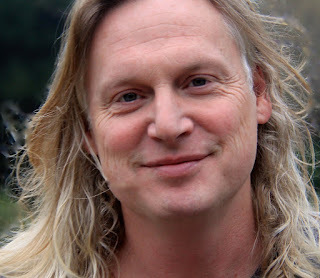 Joshua Braff, Author
Joshua Braff, AuthorTHE DADDY DIARIES
THE UNTHINKABLE THOUGHTS OF JACOB GREEN
PEEP SHOWJoshua Braff uses both truth and fiction to bring us his THE DADDY DIARIES, a story about a stay-at-home dad who moves with his family from California to Florida where his wife has a new job. Braff’s family and his relationships with his family motivate his writing. Humor is crucial in his novels, and he considers flawed humans to be real.
Braff has written two other novels, THE UNTHINKABLE THOUGHTS OF JACOB GREEN and PEEP SHOW, and you can find his works in The Huffington Post. When he’s not writing, he paints large canvases with acrylic and oil, has sold his art, and has had two studios. He is currently working on his next novel.
Don't miss the giveaway opportunity following the interview.
Q: THE DADDY DIARIES concerns a family who moves from San Francisco to Florida, a situation that causes me to shudder (apologies to my friends who live in Florida. You know I’m a Californiaphile.) How did you conceive of such a plot? Is your novel based on real events?
Joshua Braff: Yes, I use both truth and fiction in my writing. This story was based on us, a family of four that left the SF Bay Area for St. Petersburg, FL, for a job. My wife’s job. I was and am the stay-at-home Dad in our life. When we arrived the kids were off to school, the wife to work and I was still wearing my Pacific Northwest jeans in the 106 degree weather. I bought shorts and found the best air conditioning I could fine. Starbucks. I started writing “pieces” about my observations of my children throughout their lives. From the perspective of a writer that focuses on the human condition and families, my creative well was full. The Daddy Diaries is the result. I love the book.
Q: You focus on family life in your books. Is this a theme that is especially important to you? Why?
Joshua Braff: When I began writing short stories in grad school in 1995, I saw the process as an art form only. The notion that I’d attempt to also get paid and contribute to a nest egg was not going to come from my “hobby” of writing tender sketches about Americans. When I got good at it the result was an ability to tap into fictionally structured moments that seemed to emit a level of importance. Perhaps literary importance. Moments like this to readers of short stories are rare and feed the soul well. So, the topic of family and relationships within the family is at the crux of all my motivations.
Q: Your reviewers mention how much they enjoy your use of humor. How helpful is it to tell your story?
Joshua Braff: Crucial, in novels. Not important in short stories. Again, short stories, to me, are pure art. Novels cannot be assessed without taking into account you’re selling them to a mass amount of people. The people have needs, focus group needs. I want to make them laugh, cry, giggle at sexual stuff we all face and recognize themselves in the sentences. I’ve always described my thoughts of structure to involve, humor, pathos, pace, and us much dialogue as I feel like. Dialogue can be funny just for sounding so real. My characters are partially “defined” in dialogue. I love when good characters speak in novels. Not everyone can write humor.
Q: Reviewers also claim that you “highlight both negative and positive points of the family.” How supportive are flaws or negative sides to building a relatable story?
Joshua Braff: I’d say I’m nothing without fully realized, three-dimensional characters. No human comes without flaws. My game is to make you see elements of your own real, adult life. So the warts are just as important as the porcelain skin. It won’t come off true if the characters are either mired in doom, or smiling all day long. The best day of your life is not the day I write about. But if I did, I’d be sure to recognize the moments in the fleeting perfection that remind us of our vulnerability.
Q: How do you create interest or suspense in a story about a family? What keeps your readers turning the pages?
Joshua Braff: I’d say the unknown. I’m in control with the “volume knobs” of the tempo and vibe of the moment. This too is earned in how you open the book and introduce characters. But when you write about kids and you draw them to be real, isn’t the reader now in a vulnerable spot, not yet knowing what happens to these kids you care about. Same with the adult characters. If you’re relating heavily to a character and I place her in a place of possible trouble, you’re going to turn the page to see what happens. We all come from family. I sometimes play with dangers that never come to fruition. The reader will turn pages, just to see if everything is going to be okay.
Q: Did you write THE DADDY DIARIES strictly to entertain your readers or did you also embed a message or two in the story?
Joshua Braff: I believe strongly in one’s ability to bring all of themselves to parenting. There is adequate parenting, detrimental parenting, a sort of “dial it in” vibe that comes off the American dad, etc. I am not perfect but I work at and construct ways in my mind to connect with my kids, now teenagers. I know they love me but are also in the process of finding their independence. This definitely involves rolling their eyes at me. My openness to being told, “You’re wrong, Dad,” is at the core of an ability that is lost on certain parents. People too caught up in the “life lessons” they feel must be imparted to attain decent citizens. Life is messier than that. Without the ability to forgive and be able to apologize, you’re just going to end up clashing. Because I’m a writer, home, I raised them both, hands on. I am a much richer person for the experience of raising my kids.
Parenting and marriage are not classes Americans are required to learn. P.E. is. Chemistry. I think people marry quickly to assuage their parents. I think people see weddings as a big-old-queen-for-the-day party but not the beginning of all that much. The parachute for getting out of marriage is as easy as getting out of bed. So, the institution of marriage reads as solid as our country’s infrastructure. Brittle at best. So, I’d say, there’s work to be done in appreciating that childhood is fleeting and culminates in adults that represent us as a people. Do better when they’re very young. Sew your oats so you’re not in competition with the babies you brought here with your loins. And yes, I Iove entertaining my readers.
Q: What tip[s] would you offer to ‘Dads’ about their role in the family?
Joshua Braff: Be both the alpha, the guy who takes the reigns when the lights go out. But also be the child you remember being. Join in on the silliness of our existence, the amazing and unique path of your children as they look to you for answers in your every move. Go easy on yourself, it’s very hard at times. But it’s one of those miracles that never stops to amaze. You and a once stranger made these babies. They stay babies for about 3 seconds. Now you’re looking at someone who may or may not be your friend. It’s up to you. It’s an opportunity to forge a life long relationship. Many people mess this up. Let the child grow to know she’s safe and always in a routine of unconditional love.
Q: You write for the Huffington Post as well as contribute to anthologies. What else have you written? Do you prefer writing articles, short stories, novels, fiction, non-fiction?
Joshua Braff: I love writing essays. The Huff Postlikes my work so they post everything and then I use the links to reach anyone out there with an internet connection. I haven’t tried a short story in years. They are so fulfilling but there’s a strong sense, these days, that it won’t be read. The attention span is rough for pieces that open on a porch in Georgia. A question then arises, who cares? One day I will write creatively without the intention of posting or publishing. It will be for me, my friends and family. There will be something so freeing about it. It all began as an artistic outlet.
Q: What’s next?
Joshua Braff: Excited about the next novel. Haven’t ever been this excited to write. It’s related to my age, I think, and my success in taking control of the business end of my career.
Q: Tell us about Joshua Braff. What do you like to do when you’re not writing?
Joshua Braff: I paint large canvases with acrylic and oil. The genre is known as Color Field, Abstract Expressionism or The New York School. Pollock, Rothko, Christenson, Noland, Newman, Motherwell are some of the heavy hitters. I’ve sold pieces, had two studios and for months at a time have forgotten about writing completely. It is a respite from words. A very rich respite. I am also way into photography and music. I play guitar, drums and some piano.
About Joshua BraffJoshua Braff is the author of three novels, THE UNTHINKABLE THOUGHTS OF JACOB GREEN, PEEP SHOW, and THE DADDY DIARIES, published May 5, 2015. THE DADDY DIARIES is a memorable take on contemporary fatherhood and a clear-sighted look at how the upending of traditional marital roles can affect the delicate balance of familial love. Braff's work can also be found in The Huffington Post and in multiple anthologies. He has an MFA from St. Mary's College and lives in Northern California with his wife and two children. Visit his website for more information.
About THE DADDY DIARIES
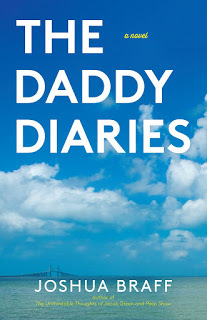 THE DADDY DIARIES is a humorous and poignant novel about a relationship between a stay at home dad and his two preteen kids. When his wife goes to work full time in a beach town in Florida, Jay must acclimate to life in the south. With a rich but stupid older brother, a lunatic townie friend and a teen son who’s ready to know what a “threesome” is, Jay’s world is thrown about as far as California to Florida.
THE DADDY DIARIES is a humorous and poignant novel about a relationship between a stay at home dad and his two preteen kids. When his wife goes to work full time in a beach town in Florida, Jay must acclimate to life in the south. With a rich but stupid older brother, a lunatic townie friend and a teen son who’s ready to know what a “threesome” is, Jay’s world is thrown about as far as California to Florida.Purchase LinkAmazon
Social LinksWebpage Blog Facebook Twitter: https://twitter.com/joshuabraff
Giveaway:1st Prize: Kindle Paperwhite plus ebook or paperback copy of The Daddy Diaries2nd Prize: $50 Amazon Gift Card and ebook or paperback copy of The Daddy Diaries3rd Prize: ebook or paperback copy of The Daddy Diaries
Direct link to the giveaway

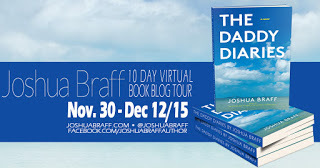
Published on December 07, 2015 20:07
November 17, 2015
WHAT THE EXPERTS SAY: Geetanjali Mukherjee, Author
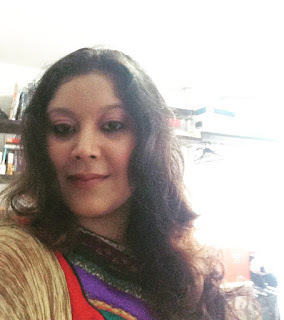 Geetanjali Mukherjee, Author
Geetanjali Mukherjee, AuthorANYONE CAN GET AN A+Geetanjali Mukherjee writes non-fiction books on a variety of topics--from an overview on Hitler’s “architect,” Albert Speer, to a collection of poems. She produced her latest book, ANYONE CAN GET AN A+: HOW TO BEAT PROCRASTINATION, REDUCE STRESS AND IMPROVE YOUR GRADES, as a result of her educational experiences in India, the UK, and the U.S. She intends for the book to help “empower” students to do well.
Mukherjee, who has written a total of six books, has a law degree from the University of Warwick UK and a Masters' in Public Policy from Cornell University. When she is not writing, she most enjoys reading (although she confesses that she loves to binge-watch TV and pretend it’s research.) Currently she is living in Singapore, working on a book of essays and one of narrative non-fiction.
Q: How did you come to write your latest book, ANYONE CAN GET AN A+: HOW TO BEAT PROCRASTINATION, REDUCE STRESS AND IMPROVE YOUR GRADES? Why did you decide to write on this topic?
Geetanjali Mukherjee: Firstly, thanks a lot Joyce for having me on your blog! I actually had the idea for this book many years ago, when I was in school and learning and applying a few of the tips myself. I had always been a good student, but in high school I found myself struggling with the technical subjects, science, mathematics and computer programming. I was barely passing in some of my classes, and had to completely overhaul my study habits, and get some additional help. My efforts paid off, and in the O-level equivalent exams, I received top marks and became class valedictorian. I went through similar experiences during my Masters' program, and I became interested in how to turn around grades and learn to do well in subjects despite struggling initially.
I wrote this book to share my own tips and success strategies, as well as those I picked up from reading some of the most recent research into how our brain works, and how to harness that knowledge to study and learn more effectively. I could see that so many students, especially in competitive societies where a single grade can have a huge impact on their future, are stressed out and overwhelmed by the pressures of schoolwork. I wrote this book in the hope that it could empower students to believe that they could do well in their studies without burning out or giving up.
Q: What age group will most benefit from reading ANYONE CAN GET AN A+? Is it targeted at adult students only?
Geetanjali Mukherjee: Actually the book was written primarily aimed at college or high-school senior students, but the advice can be implemented by younger students in middle school or younger and even those in continuing education, returning to school after a few years gap, or juggling the roles of student and parent or employee simultaneously. Being able to become more effective with the time you spend studying and get more out of it are topics that can benefit anystudent regardless of age.
I also wrote this book hoping to encourage those students who avoid certain careers believing that they lack the ability to excel in those subjects. It is an accepted fact that most countries are struggling to improve their diversity ratios in the fields of technology, science, and medicine. At the same time, the range of free and low-cost educational resources that are now available to students worldwide are incredible. I believe that anyone, with the knowledge of improved study strategies, can learn to master any subject and follow any career path that they choose.
Q: You have been educated in India, the UK, and the U.S. Do you believe that students from all three countries or anywhere else can benefit from ANYONE CAN GET AN A+?
Geetanjali Mukherjee: Obviously as an author I have drawn on my own student experiences, and therefore the book would resonate more with students with similar experiences. However, the strategies I describe in the book are universally applicable, even if my own personal experience might differ from readers from other countries. In the book, I describe ways to harness our brain's capabilities based on scientific research, much of which I learnt after I stopped formal education; these tips would help any student, no matter what their specific curriculum or school requirements.
Through this book, I wanted to provide an alternative to the brute force school of studying, without advising overly complicated 'hacks' which some authors of study guides prescribe. Anyone can pick up my book and start to apply its principles, without the need to set up elaborate systems and methods. I have tried to break down everything that I learnt into simple tips, and I am sure that every student can find something to apply from this book.
Q: You have written other books that span a wide range of topics from an overview on Hitler’s “architect” Albert Speer to a collection of poems. How do you select your topics? Is there a theme that runs through them?
Geetanjali Mukherjee: Well Joyce, that's actually a question I asked myself recently. I mostly write about topics that interest me. Most of my current books started as research for school or college projects or papers, even the poems were mostly written during my time at university. One theme that runs across all my work (barring the book of poetry) is that they can all be helpful to students, albeit across literature, history and political science / law.
Additionally, although I didn’t notice this at the time of choosing my topics, most of my work has the theme of social justice and human rights running through it, in some form or other. My first book was a critical analysis of some of the late Nobel Laureate Seamus Heaney's poems, many of which were influenced by the Northern Ireland conflict and referenced those themes. My books on Albert Speer and the Convention on Cluster Munitions have obvious connections to war and conflict. Finally, in my latest book on study skills, I realized the main driving force behind my writing this book was to encourage students who may not have the environment that allows them to believe in themselves, or are struggling in school and don’t have the support to get the help they need; I want to show these students that everyone has the ability to do well in every subject, and they should never give up on themselves. This is a topic I feel really strongly about.
In terms of how I decide what to write about – it is whatever I am obsessed about at that moment. Writing a book is hard - they take a long time, and I never really feel that I am getting it right, and sometimes I can be very difficult to live with while I am writing one, but I write because something propels me to. I write all the ideas that occur to me down in an ideas file, and when something just refuses to leave me alone, I decide to pursue it further.
Q: Do you prefer writing poetry or non-fiction? Do you find that you can say something with poetry that you can’t in prose? Have you considered writing fiction?
Geetanjali Mukherjee: I haven’t really written much poetry since I wrote the poems that are part of Illusions. I believe that poetry is the most pure form of writing, and you can convey emotions and thoughts in a completely different way through poetry. I would like to write more poetry, but unlike with non-fiction writing, I have to admit I wait for inspiration to strike to write poetry. And of course that isn’t the most prolific approach towards creating anything.
I am currently writing my first novel actually as part of Nanowrimo. I have tried to write fiction before, but other than a play I wrote that was performed locally, I have never been able to complete any work of fiction that I started. I am hoping that changes with this one, which I am privately calling my "drawer novel" in that I will probably relegate it to a drawer when I am done. I do have a few more ideas, so I hope to write novels for publication at some point in the near future.
Q: Do you try to deliver key messages or to educate your readers? What is your primary goal when you write?
Geetanjali Mukherjee: I remember reading somewhere that even if you have a message to deliver as an author, you should hide it very subtly within the story, and above all, seek to entertain. I am not sure I have achieved that yet, but I definitely keep that advice in mind when I write. Since I write non-fiction I guess it is acceptable to try to educate my readers, but my goal is really for the reader to gain a new perspective on the subject, or to ask more questions and think about the topic even after they have finished reading the book.
I guess my ideal goal would be that my books are read by those who have only a passing interest or even none at all in the subject, and my book kindles a deeper interest in them, or they feel that they have learned something unexpected from it. Personally, I have always had absolutely no interest in astronomy, I don’t even know where most of the major constellations are, but I happened to read this one book on the demotion of Pluto, and it kindled this passion in me for astronomy. Now I am hungry to read more books on the subject, and learn more about it. That’s the power of non-fiction, and that's really what I am aiming for, although probably not quite getting there, yet.
Q: What tips can you offer about “being creative and productive every day?”
Geetanjali Mukherjee: Well this is a pretty vast subject, one that I feel I am only scratching the surface of. I write about being more productive and creative on my blog, to share what works for me and good advice that I come across elsewhere.
The most important advice I guess I could give would be a derivation of a quote from Ira Glass, the radio personality. As creative people, our ability is far less developed than our taste, and so what we create may well be far worse than we would hope for, at least initially. I used to personally get discouraged by this, and give up. What Ira Glass suggests, and I concur, is to keep doing the creative thing, whatever it is, no matter how bad it is. At some point, it stops being bad, and moves to tolerable, and sometimes, it is even good. And then, when you keep at it long enough, suddenly you are really good, and on some lucky days, even great. Believe that that moment will come for you. And my unique take on this advice – find whatever productivity hacks that help you to keep at it, even when it is hard, or when the work feels hard, or when you're sure it is intended for the stink pile. With some rare exceptions, most of the greats in your chosen field got there because they learned how to get through the really bad output, the really bad art, and keep going till they got better.
Q: What do you find to be the most challenging topics to write about? Why?
Geetanjali Mukherjee: I find every book I write challenging. I used to think that meant that I wasn’t really cut out to be a writer, but thankfully I have since come across advice from successful, famous writers who have similar concerns. I suppose each writer has one area or maybe more that they find easy to write about – in my case I found writing Anyone Can Get An A+ somewhat easier than my previous books. This could be because I was writing partly from my own experience. Now that I am trying my hand at fiction, I find that this is the hardest thing I have ever tried to write.
Come to think of it, I could have answered this question with one sentence: I find that the book I am writing currently is the hardest one to write, and the book I have just written and all the ones before were far easier. And I feel the same way for each new one.
Q: What’s next?
Geetanjali Mukherjee: Well, right now I am focused on completing Nanowrimo. I have also started work on a book of essays and a work of narrative non-fiction. I have plans for a few other books in the pipeline as well, but nothing definite yet.
Q: Tell us about Geetanjali Mukherjee. What do you like to do for fun when you’re not writing?
Geetanjali Mukherjee: Read. I read even when I am supposed to be writing, and like all writers, I have a longer list of books to read than time to get through them all. I also hold a leadership position in a community Buddhist organization, and we have events and monthly meetings to discuss topics related to peace in society and personal happiness. Through this organization, last December I performed in a choir at a concert to promote friendship and cultural exchange. I've lately taken up yoga and Zumba as well, because although butt-in-chair time is great for my word count, apparently it's terrible for my arteries. My guilty pleasure though, is binge-watching TV shows, pretending it is research!
About Geetanjali Mukherjee:
About ANYONE CAN GET AN A+
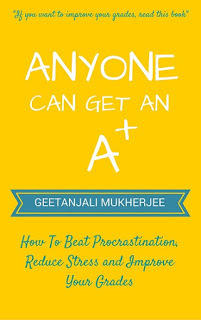 Do you wish you could get better grades? Do you struggle with certain subjects and believe that maybe you're not cut out for them? Do you want to spend less time studying and still get good grades? Maybe you think that some subjects are just not for you. Maybe you don't like to study, because you secretly believe that you just don't have what it takes, so why bother? Maybe you are a parent, worrying about your child's grades, worrying whether they will be able to qualify for the opportunities you want for them.
Do you wish you could get better grades? Do you struggle with certain subjects and believe that maybe you're not cut out for them? Do you want to spend less time studying and still get good grades? Maybe you think that some subjects are just not for you. Maybe you don't like to study, because you secretly believe that you just don't have what it takes, so why bother? Maybe you are a parent, worrying about your child's grades, worrying whether they will be able to qualify for the opportunities you want for them. Studying for tests and exams can be stressful, not just for students, but also for teachers and parents. Grades in school exams and standardized tests can seem to determine your entire future, and yet many students are not able to get the grades they think they need to succeed.
This book draws on research from the fields of psychology and neuroscience, and gives you practical advice that you can implement right away, to overcome procrastination, make the most of your study time and improve your grades significantly. ANYONE CAN GET AN A+ contains 39 tips on various aspects of studying and preparing for exams. In this book, you will learn:· How best to prepare for exams· What is the top mistake most students make when doing exam preparation and how to avoid it· How to overcome procrastination and use your study time wisely· How to break down larger assignments into smaller chunks· How to use small segments of time effectively· How to get help for understanding difficult material
ANYONE CAN GET AN A+ is available for free on Amazon from Nov 16th – Nov 19thhttp://hyperurl.co/j4kdc9
Links
Purchase LinksAmazon Barnes & NobleApple Kobo Book Depository
Author LinksTwitter: http://twitter.com/geetumukFacebook BlogGoogle+Goodreads Smashwords
Published on November 17, 2015 18:05
November 15, 2015
WHAT THE EXPERTS SAY: Julia Fellner, Author
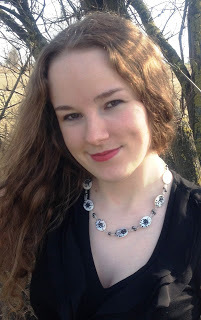 Julia Fellner, Author
Julia Fellner, AuthorTO BE A HERO
REVEALED
SELF-PUBLISHING HANDBOOKJulia Fellner recently released TO BE A HERO, described by one reviewer as “a fast-paced read that is inspirational, touching, and humorous all at once.” In her story, Fellner says she explores different ideas about heroes because characters define a “hero” in different ways.
Fellner has learned to appreciate the process of publishing and marketing, which led her to write a SELF-PUBLISHING HANDBOOK and to create the concept of “authorpreneurship.” She claims that authors who want to succeed must learn the business of publishing, market their book even if traditionally published, and operate story-production like any other business.
Fellner currently lives in Austria. She is working on another book of short stories and a novella. When she isn’t writing or marketing her own writings, she enjoys going for long walks with friends, traveling, and baking. Although German is her native language, she enjoys writing in English. She graduated from Vienna University with a Bachelor in English linguistics, literature and cultural studies and completed a Masters degree in Management in the Creative Economy at Kingston University London.
Q: You have written novels that include vampires and heroes. Are your novels directed at young adults? Are they cross-genre?
Julia Fellner: My first two novels are both written in the young adult genre because I was 16 and 19 years old when I started writing them. So it made sense to write for other young adults when I was one myself. However, now I’m looking at exploring different genres. What I do also very much enjoy about the Young Adult genre is that, while there are subgenres, you do not need to stick to certain genre norms necessarily as long as it’s a story about young adults.
Q: You have also written short stories. Do you prefer short stories over longer novels? What is the key difference?
Julia Fellner: Since it is quite a lot of work to develop the world, in which a story is set, I prefer novel-length stories. Novels also allow for more words to explore the world and the characters. However, I do also believe in the art of being concise and leaving certain aspects to the imagination of the reader, so short stories definitely also play an important part in honing my skills and experimenting.
Q: You have written a novel TO BE A HERO. What are characteristics of a hero? Do you need a villain to have a hero? What are the traits of an effective villain?
Julia Fellner: These are questions I also very much explore in the book. Different characters have different ideas but most of them are guilty of either belittling or romanticizing people who are heroes in their opinion. Valerie, the protagonist, struggles with the latter when she tries to be a hero like in the stories she reads and her romanticized image clashes with real life. This is also why I decided to tell the story as a young adult novel. Realizing that you have been romanticizing certain people or ideas, and having to construct new meanings for yourself is, in my experience, part of growing up. To find out how exactly Valerie ends up defining what a hero is, and whether a hero always needs a villain, you’ll have to read the book.
Q: In addition to writing fiction, you have released an e-book on self-publishing and you also offer consulting services for authors. Can you offer three to five tips for self-publishing authors?
Julia Fellner:1. Don’t rush into anything. There are a lot of “publishing” companies that try to make money off of people who are new to the industry. If someone asks you to pay money to publish the book upfront, let alone to read the manuscript, you should research their credibility very thoroughly and seriously consider saying no to the offer. 2. Find a great editor. Even if you are a Spelling Bee champion, as a writer you reach the point where you’ve read your manuscript so many times you can’t even spot typos anymore. Hence, definitely have someone professional make sure the manuscript is in a mistake-free condition, before publishing it.3. Invest in the cover art. People do judge a book by its cover, so your book can have the potential of bestseller but if the cover doesn’t reflect the quality of the writing, customers won’t even bother to read your blurb.4. The most time-consuming task is marketing. There is so much to say about this topic I’m currently working on another free eBook called the Writers’ Handbook to Marketing, which should be finished soon.
Q: Can you describe what you mean by “authorpreneurship?”
Julia Fellner: If you want to have a sustainable career as a writer, you also need to be an entrepreneur. You want to know the industry, so you are not dependent on any publishers or agents. You need to do your own marketing, often even if your book is published traditionally. You basically run your own business like any other entrepreneur.
Q: Do you write your fiction strictly to entertain your readers, or do you also try to educate or deliver a message?
Julia Fellner: I think delivering a message in your writing mostly happens unconsciously. I often only know what a book is really about once I’ve finished the first draft. For TO BE A HERO, for example, I realized that how fictional worlds and reality intertwine was one of the big themes, so in successive drafts I worked on making the main themes more prominent. However, ultimately I do agree with Roland Barthes, in that the reader decides, which message the book delivers.
Q: How do you create credibility for your fictional stories, specifically in the world of vampires? Is credibility important to telling the story?
Julia Fellner: Good world building, in my opinion, means that every world you build should be consistent within itself. If the world and its characters are credible, the novel being part of the vampire genre becomes less important. Personally, I actually tried to steer away from using too much of vampire clichés and folklore. As an avid reader of vampire novels at that time, I felt like I had read the same origin stories too often and wanted to give my vampires a different angle, even if, perhaps, this choice makes them less credible in some people’s eyes.
Q: What do you recommend to develop characters that engage readers?
Julia Fellner: Usually, when I start plotting I start with the characters. All my plot outlines begin with who the main characters are, what their family background is. This way I know which formative experiences in their lives have led them to where they enter the first page of my story. Having pages about the character’s history and traits, it feels more natural to develop the plot, knowing exactly who the character is and how they would react in certain situations. I believe that if a writer can achieve letting all these facets of the characters’ personality and back story shine through, without ever having to mention those first few pages in the plot outline explicitly, then readers will be engaged because the character becomes three-dimensional and relatable.
Q: What’s next?
Julia Fellner: Currently, I’m taking part in NaNoWriMo – the National Novel Writing Month, where writers try to write 50,000 words in November. Based on what I write now, another short story collection will be ready for publishing in the coming months. These short stories have been inspired by conversations with my friends and us complaining that there are not enough stories where there are lgtbqia+ characters, whose sexual orientation or gender identity is represented realistically and they are also not reduced to it.
I’m also working on a novella, which is the prequel to the next novel I want to write. It will be my first piece of writing that is set in Vienna, so I’m very excited about getting to play with the city’s history and famous places.
Q: Tell us about Julia Fellner. Is English your first language? What do you like to do when you’re not writing?
Julia Fellner: Although German is my first language, I started writing in English very early on, when I was about fourteen. Languages have always fascinated me, and so I studied, like many other writers, English. While this choice has certainly helped to hone my writing skills, I decided I needed to learn more about being an entrepreneur and went to London to study Management in the Creative Economy.
When I’m not working, I’m often working on writing-related authorpreneurship tasks, which mainly means marketing. But I also enjoy going for long walks in parks with my friends, travelling and baking.
About Julia Fellner
“I wrote my debut novel, REVEALED, at the age of sixteen. After this first experience with the publishing industry I wanted to become more entrepreneurial than just writing.
“Therefore, I self-published my second novel, TO BE A HERO; a short story collection, Adventure Stories of Pirates, Robots and Coconuts, also very much enjoying the management side of the process. Based on my experiences as an authorpreneur, I have also released two free eBooks, the SELF-PUBLISHING HANDBOOK and the Writers’ Handbook to Marketing.
“I graduated from Vienna University with a Bachelor in English linguistics, literature and cultural studies and completed a Master degree in Management in the Creative Economy at Kingston University London. Currently, I live in Austria, where I am working on exciting new projects.”
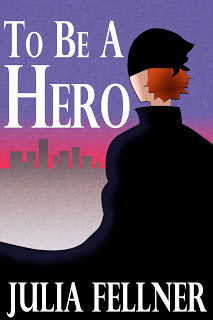 About TO BE A HERO
About TO BE A HERO Valerie has loved stories about heroes ever since she was a child. Now it’s her chance to become one herself.
When a masked, self-proclaimed hero called Shadow appears in her hometown, she decides to team up with him and become a hero herself. Valerie is an unlikely adventurer. She can’t run fast and she is a little insecure. But she is passionate about turning her life into an interesting story.
However, soon she has to learn that living a story is not as easy as she had thought. In a small town with no big adventures, the person underneath Shadow’s mask is the only mystery worth exploring. When Shadow’s secrets pile up, she has to learn to face problems without her mask.
In a world that believes it no longer needs heroes, can Valerie and Shadow prove it wrong?
 About REVEALED
About REVEALEDVampires, secret societies and first love – those are things that Anne Watson missed during her first high school experience.
Panthera Academy is not only a place for eccentric characters, but also the home of two secret societies, the panthers and the rebels. There Anne has to deal with midnight meetings, shocking confessions of dark secrets and mysterious deaths as she experiences falling in love for the first time.
About SELF-PUBLISHING HANDBOOK
Based on my own experience of self-publishing my second novel TO BE A HERO, I have compiled a Handbook to guide you through the self-publishing process. Originally a blog series, the Handbook starts, by helping you decide whether self-publishing is for you.
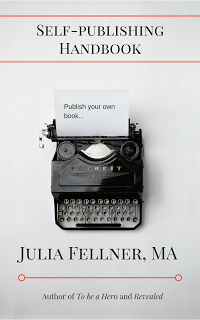 In order to produce a quality book, topics from editing, over cover design to typesetting are explained. Next, legal considerations and different distribution channels, as well as financial concerns are addressed. Finally, the biggest section focuses on marketing - the bread and butter of any author, offering advice on how to build up to the release and continue creating impactful marketing afterwards.
In order to produce a quality book, topics from editing, over cover design to typesetting are explained. Next, legal considerations and different distribution channels, as well as financial concerns are addressed. Finally, the biggest section focuses on marketing - the bread and butter of any author, offering advice on how to build up to the release and continue creating impactful marketing afterwards.Links
Purchase LinksTO BE A HERO eBook (U.S.) TO BE A HERO paperback ETSY
REVEALED eBook (U.S.) REVEALED eBook EUR
Freedownload of Self-publishing Handbook (Smashwords)
Author LinksWebsite NewsletterFacebook Twitter: https://twitter.com/FellnerBooksInstagramTumblr blogWordpress blog GoodReads
Published on November 15, 2015 19:25
November 11, 2015
WHAT THE EXPERTS SAY: Chrissie Parker, Author
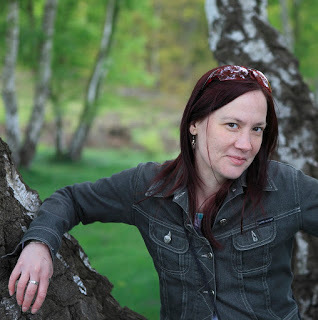 Chrissie Parker, Author
Chrissie Parker, AuthorTEMPERANCE
INTEGRATE
AMONG THE OLIVE GROVESChrissie Parker’s recently-released TEMPERANCE is a thriller/suspense novel that is a sequel to her previous novel INTEGRATE, both of The Moon Series. One reviewer said, “there is so much thrill and intrigue in this story.” She makes us care about her characters by giving them flaws and their own personal issues. Parker also tells us that she wrote the book primarily to entertain but suggests that readers will appreciate the theme that life never goes as planned.
Parker is currently planning to release two books in 2016 including the third novel in The Moon Series, Retribution. She lives in Devon, UK with her husband and is a freelance Production Coordinator in the TV, documentary and film industry. In addition to her thrillers in the Moon Series, she has also published her historical fiction novel AMONG THE OLIVE GROVES as well as various short stories and articles.
Don't miss the excerpt from TEMPERANCE following her interview.
Q: You’ve placed your new novella, TEMPERANCE, in the thriller/suspense genre. What makes it a thriller?
Chrissie Parker: The book is a cat and mouse game that twists and turns with multiple story lines, including a brutal unsolved murder and the death of a loved one, that all criss-cross each other. It connects a group of characters that are all suffering with some kind of major issue that throws all their lives off course. Hopefully it will leave the reader second-guessing until the end!
Q: TEMPERANCEis a sequel to INTEGRATE. Can you remind us where INTEGRATE left us? WARNING: This is a spoiler response. If you haven’t read INTEGRATE and intend to, go directly to the next question!
Chrissie Parker:Integrate ended with Jack being run down by a car and left in the road to die, by Corinne. Corinne had previously lost her twin sister Helena in a hit and run accident and she had sought comfort with Jack – a stranger in town. By the end of the book Corinne had learned that Jack was the one who had killed Helena, and she took her own revenge by doing the same thing to him as he had done to Helena.
Q: How do you make us care about your characters? Are they perfect? Do they have flaws?
Chrissie Parker:Each character in TEMPERANCE has their own issue, something unexpected that has happened in their lives that they are struggling to cope with. None of them are perfect, they all have their demons and flaws, which go some way towards shaping the characters they are, and the characters they will become. Some become better people because of their flaws, for others their flaws rule their lives forcing them to make questionable decisions.
It’s a rollercoaster ride of emotion, betrayal and deceit.
Q: Does humor help to develop your characters or tell your story?
Chrissie Parker: To be honest there isn’t much humour in this book, the themes are quite dark and very emotional at times. I do use humour in other work, but TEMPERANCE is definitely dark and slightly edgy!
Q: Do you intend to deliver a message or educate readers in TEMPERANCE or did you write it primarily to entertain?
Chrissie Parker: I have written these books primarily to entertain. I didn’t intend there to be any messages in the book, but there are a few that do run through the story. The main one is that life never goes according to plan. Life is full of the unexpected, things that will happen to us whether we like it or not. As much as we plan and prepare, sometimes we just have to accept what is happening around us and do the best we can to get through it, with, or without, the help of others. It’s about learning to live with the life we have been dealt, and get on and actually live it and not blame others for our bad fortune.
Q: Does the concept of heroes vs villains play a role in TEMPERANCE? What attributes do you like to see in an effective villain?
Chrissie Parker:Yes, very much so. In fact many readers will probably spend much of the time trying to work out who is a villain and who is a hero. Not everything is as it seems in TEMPERANCE and there are some big surprises.
I think that an effective villain is someone who is selfish, they are someone who only thinks of their own needs, wants and desires above everything and everyone else. They are someone who has a fair amount of control, coupled with a big dose of manipulation. They have an ability to make people believe anything they want, in order to get their own way, a person who has no boundaries and is extremely reckless, with no concern for others or the law. A person who ultimately thinks they are invincible and can do, and get away, with anything.
Q: Why write a series, i.e., INTEGRATE and TEMPERANCE are part of the Moon Series. What do you like about a series vs standalone books? What connects them to the Moon?
Chrissie Parker: I never intended to actually write a series. INTEGRATE was always supposed to be a standalone book. One night I had a dream about the plot of book three (Retribution). The character Corinne from INTEGRATE was effectively telling me that there was more to come and that INTEGRATE was just the beginning. I wrote the main points of the dream down, and thought it through, and then came up with two continuing plots for the rest of the series. I’ve never been a big fan of series but I definitely felt that this story wasn’t over and needed to be told.
Ah, the Moon. That’s a huge plot point in Retribution, so as much as I’d love to answer that part of the question, I can’t!
Q: How do you use back story and/or setting to tell your story?
Chrissie Parker: In TEMPERANCE the setting is pretty generic. As with INTEGRATE, it’s nowhere specific in the world, but the Lake area does have its own name – Lake Tranquil. Reading the book, the reader could be in the U.S. or they could be in England. The back stories of the characters are important and this book is a sequel to INTEGRATE and it’s the link that will lead to the final book Retribution to bring us full circle back to INTEGRATE! (I can’t say too much more than that without giving away the plot for the next book!)
Q: What’s next?
Chrissie Parker: My aim is to release two books in 2016. One will be Retribution the final book in The Moon Series and the other will hopefully be Wind Across the Nile, a historical fiction/suspense set in Egypt.
I am also working on another historical fiction/suspense set in Petra and Jordan and am planning another book set in Greece which has been a request from my readers – they want to know what happened to some of the characters in AMONG THE OLIVE GROVES so I am going to write the story for them. I like to keep my readers happy!
Q: Tell us about Chrissie Parker. What do you like to do when you’re not writing?
Chrissie Parker: I live in a small village in Devon in the West of England, a recent move from London. I’m currently enjoying exploring the area, which is full of history, beautiful nature and interesting places to visit. I’m also studying an Egyptology course and love learning and reading about history in general.
I like spending time with my family and friends, as well as doing a bit of gardening, and doing patchwork sewing (something I’ve recently begun doing again).
About Chrissie Parker
Chrissie lives in Devon, UK, with her husband and is a freelance Production Coordinator working in the TV, documentary and film industry.
Chrissie is also an Author. Her thriller INTEGRATE was released in October 2013 and her historical fiction Among the Olive Groves was released in July 2014.
Other written work includes factual articles for the Bristolian newspaper and guest articles for the charities Epilepsy Awareness Squad and Epilepsy Literary Heritage Foundation. Chrissie has also written a book of short stories and poems, one of which was performed at the 100 poems by 100 women event at the Bath International Literary Festival in 2013.
Chrissie is passionate about Ancient History, Archaeology and Travel, and has completed two six-month Archaeology and Egyptology courses with Exeter University. She is learning to play the Ukulele and likes to read, collect books, listen to music. To find out more about Chrissie visit her website www.chrissieparker.com
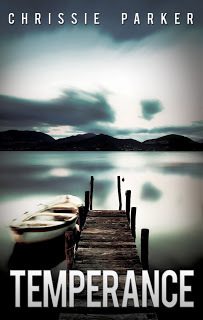 About TEMPERANCE
About TEMPERANCEGabriel is weary, hunting for a murderer. Patience is adrift, her life a complete lie.Nate is scared, hiding from his worst fears.Juliet is frantic, her time is running out.
As four fragile lives collide, the truth is finally revealed.
And betrayal and death become inevitable.
Excerpt
Lake Tranquil was vast. So much so that Patience couldn’t see where it ended or began. Despite its size, it was deserted. She was the only human in sight and she loved the thought of being so alone, immersed in the beauty of nature. An occasional bird flitted in and out of the trees, or swooped down to land at the water’s edge. In the distance, a rabbit ran through the trees, its tail bobbed, flashing white as it ran for cover.Trees lined craggy mountains that surrounded the lake. They were thick, green and tall, and reached to the shoreline; only a small wavering line of pebble-covered beach sat between the shimmering waters and the forest. It was heavenly. It wasn’t the first time Patience had been to Lake Tranquil. Once, as a child, she had visited it with her mother and enjoyed a week of blissful freedom away from the chaos of life. Now here, fleeting memories flooded back. Swimming in the lake as her mother sat on the deck and read. Running through the trees playing hide and seek, and sitting on the shore as the sun set. Watching the stars appear overhead as her mother cooked fish over a smoky fire. It was a time in her life that stuck in her mind, when her mother had been truly happy and content. It was why Patience was here. For her mother. To try to be closer to her, to try to understand her. To try to find some peace.
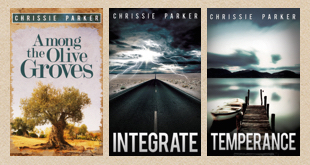
Purchase Links
TEMPERANCE
Amazon Kindle (U.K.)
Amazon Paperback (U.K.)
Amazon Kindle (U.S.)
Amazon Paperback (U.S.)
Barnes and Noble (Nook and paperback) (U.S.)
iTunes
Kobo
Author Links
FacebookgroupFacebookpageTwitter - https://twitter.com/Chrissie_authorBlog Pinterest Goodreads
Published on November 11, 2015 18:42
CHECK IT OUT: New Release MISTLETOE AT MOONGLOW by Cozy Mystery Author Deborah Garner
Cozy mystery author Deborah Garner has recently released MISTLETOE AT MOONGLOW – in time for the holidays.
A Christmas novella with cookie recipes included!
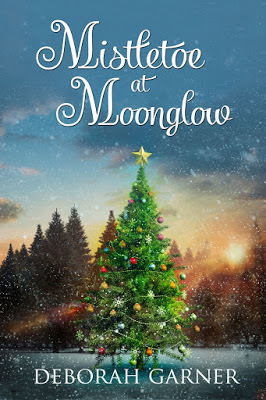
The Timberton Hotel has always provided a perfect Christmas retreat for regular guests, as well as newcomers. But the small town of Timberton, Montana, hasn't been the same since resident chef and artist, Mist, arrived, bringing a unique new age flavor to the old western town. When guests check in for the holidays, they bring along worries, fears and broken hearts, unaware that Mist has a way of working magic in people's lives. Old-fashioned time spent together, exquisite food, conversation and a snowball or two offer guests a chance to trade sadness for hope. One thing is certain: no matter how cold winter's grip is on each guest, no one leaves Timberton without a warmer heart.
Excerpt
Mist lit the kerosene lantern and placed it on the table next to her bed. Though a flip of a switch would have let the marvels of modern electricity light the room, the softer glow of the lantern always fit her evening mood.Sketchpad in her lap, she curled up on the bed and stared at the blank page, envisioning the scenes that would unfold over the next few days as the guests arrived. A widow, revisiting a favorite lodging, without the husband who’d always been with her. A child, the only one in a hotel full of adults. Two single men, both scholarly, she imagined, based on one’s profession and the other’s reading habits. And a woman from Arizona, who had never seen snow. Each person would bring varied energy to the mix.Of course, there were the townspeople, as well. She had already expected a larger crowd than Betty and Clive predicted. There weren't any other options for dining, other than staying home. And a few might do that. But more would show up, not just to be fed, but for the camaraderie. Clayton, the fire chief, and his crew, were always guaranteed to be there. The same was true of Marge, who ran the local candy shop, plus a few other regular Timberton folks.And then there was Hollister, the town’s one homeless person. Mist had kept watch over him since she first arrived in Timberton. He might not sit at a table with others, his reaction to social situations still unpredictable. But she knew he would eat whatever she fixed for him, just as she knew he would be grateful.She picked up a charcoal pencil, closed her eyes and opened them again, transferring the images of Christmas Eve dinner and Christmas brunch from her imagination to paper. She could see it clearly when she planned a meal – not just the menu or food, but the table setting, the decorations, the contrast of colors and shapes on each plate, artistic arrangements of outstanding cuisine. Every aspect of a meal was part of a whole, not merely an individual component. It all started in her imagination as one picture, later separated into pieces and recreated amidst participants.
…cinnamon…ginger…slivered almonds…
She could taste each ingredient as she planned its role.
…holly…carnations…baby’s breath…eucalyptus…
She could see the colors and textures combining as they came together.
…joy…heartbreak…love…compassion…
She could feel the emotions hovering in the room.
Sometimes she wondered if she thrived on the anticipation of an event as much as the event itself. She loved weaving the empathic aspects of each occasion, the tender piecing together of carefully selected ingredients – culinary, visual, and spatial – into a tapestry of sensations. An apple was not merely an apple. It was fresh air and crisp autumn leaves, a rich sunset, and a child’s hand reaching for a cinnamon stick. A ribbon of pasta was wheat in the late afternoon light. It was the tie that bound a family together in joy and grief.She pulled out a metal container of pastels, dented from years of use. How many shades of red were there in a Christmas memory? How many variations of green in the foliage of faith? Of ivory in a gift’s bow? Of blue in the sky of a new year’s first day?A tap on the door brought Mist out of her contemplation. She set her sketching aside and stood, crossed the room and opened the door, surprised to find Betty in the hallway, a worried look on her face…
About Deborah Garner
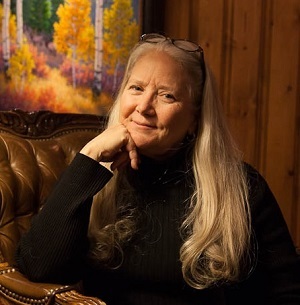 Deborah Garner is an accomplished travel writer with a passion for back roads and secret hideaways. Born and raised in California, she studied in France before returning to the U.S. to attend UCLA. After stints in graduate school and teaching, she attempted to clone herself for decades by founding and running a dance and performing arts center, designing and manufacturing clothing and accessories, and tackling both spreadsheets and display racks for corporate retail management. Her passions include photography, hiking and animal rescue. She speaks five languages, some substantially better than others. She now divides her time between California and Wyoming, dragging one human and two canines along whenever possible.
Deborah Garner is an accomplished travel writer with a passion for back roads and secret hideaways. Born and raised in California, she studied in France before returning to the U.S. to attend UCLA. After stints in graduate school and teaching, she attempted to clone herself for decades by founding and running a dance and performing arts center, designing and manufacturing clothing and accessories, and tackling both spreadsheets and display racks for corporate retail management. Her passions include photography, hiking and animal rescue. She speaks five languages, some substantially better than others. She now divides her time between California and Wyoming, dragging one human and two canines along whenever possible.
Links
Purchase LinkAmazon
Author Links
Facebook Twitter https://www.twitter.com/paigeandjake Website Amazon
A Christmas novella with cookie recipes included!

The Timberton Hotel has always provided a perfect Christmas retreat for regular guests, as well as newcomers. But the small town of Timberton, Montana, hasn't been the same since resident chef and artist, Mist, arrived, bringing a unique new age flavor to the old western town. When guests check in for the holidays, they bring along worries, fears and broken hearts, unaware that Mist has a way of working magic in people's lives. Old-fashioned time spent together, exquisite food, conversation and a snowball or two offer guests a chance to trade sadness for hope. One thing is certain: no matter how cold winter's grip is on each guest, no one leaves Timberton without a warmer heart.
Excerpt
Mist lit the kerosene lantern and placed it on the table next to her bed. Though a flip of a switch would have let the marvels of modern electricity light the room, the softer glow of the lantern always fit her evening mood.Sketchpad in her lap, she curled up on the bed and stared at the blank page, envisioning the scenes that would unfold over the next few days as the guests arrived. A widow, revisiting a favorite lodging, without the husband who’d always been with her. A child, the only one in a hotel full of adults. Two single men, both scholarly, she imagined, based on one’s profession and the other’s reading habits. And a woman from Arizona, who had never seen snow. Each person would bring varied energy to the mix.Of course, there were the townspeople, as well. She had already expected a larger crowd than Betty and Clive predicted. There weren't any other options for dining, other than staying home. And a few might do that. But more would show up, not just to be fed, but for the camaraderie. Clayton, the fire chief, and his crew, were always guaranteed to be there. The same was true of Marge, who ran the local candy shop, plus a few other regular Timberton folks.And then there was Hollister, the town’s one homeless person. Mist had kept watch over him since she first arrived in Timberton. He might not sit at a table with others, his reaction to social situations still unpredictable. But she knew he would eat whatever she fixed for him, just as she knew he would be grateful.She picked up a charcoal pencil, closed her eyes and opened them again, transferring the images of Christmas Eve dinner and Christmas brunch from her imagination to paper. She could see it clearly when she planned a meal – not just the menu or food, but the table setting, the decorations, the contrast of colors and shapes on each plate, artistic arrangements of outstanding cuisine. Every aspect of a meal was part of a whole, not merely an individual component. It all started in her imagination as one picture, later separated into pieces and recreated amidst participants.
…cinnamon…ginger…slivered almonds…
She could taste each ingredient as she planned its role.
…holly…carnations…baby’s breath…eucalyptus…
She could see the colors and textures combining as they came together.
…joy…heartbreak…love…compassion…
She could feel the emotions hovering in the room.
Sometimes she wondered if she thrived on the anticipation of an event as much as the event itself. She loved weaving the empathic aspects of each occasion, the tender piecing together of carefully selected ingredients – culinary, visual, and spatial – into a tapestry of sensations. An apple was not merely an apple. It was fresh air and crisp autumn leaves, a rich sunset, and a child’s hand reaching for a cinnamon stick. A ribbon of pasta was wheat in the late afternoon light. It was the tie that bound a family together in joy and grief.She pulled out a metal container of pastels, dented from years of use. How many shades of red were there in a Christmas memory? How many variations of green in the foliage of faith? Of ivory in a gift’s bow? Of blue in the sky of a new year’s first day?A tap on the door brought Mist out of her contemplation. She set her sketching aside and stood, crossed the room and opened the door, surprised to find Betty in the hallway, a worried look on her face…
About Deborah Garner
 Deborah Garner is an accomplished travel writer with a passion for back roads and secret hideaways. Born and raised in California, she studied in France before returning to the U.S. to attend UCLA. After stints in graduate school and teaching, she attempted to clone herself for decades by founding and running a dance and performing arts center, designing and manufacturing clothing and accessories, and tackling both spreadsheets and display racks for corporate retail management. Her passions include photography, hiking and animal rescue. She speaks five languages, some substantially better than others. She now divides her time between California and Wyoming, dragging one human and two canines along whenever possible.
Deborah Garner is an accomplished travel writer with a passion for back roads and secret hideaways. Born and raised in California, she studied in France before returning to the U.S. to attend UCLA. After stints in graduate school and teaching, she attempted to clone herself for decades by founding and running a dance and performing arts center, designing and manufacturing clothing and accessories, and tackling both spreadsheets and display racks for corporate retail management. Her passions include photography, hiking and animal rescue. She speaks five languages, some substantially better than others. She now divides her time between California and Wyoming, dragging one human and two canines along whenever possible.
Links
Purchase LinkAmazon
Author Links
Facebook Twitter https://www.twitter.com/paigeandjake Website Amazon
Published on November 11, 2015 18:42
November 8, 2015
WHAT THE EXPERTS SAY: J. Russell Smith, Author
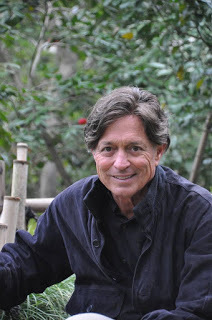 J. Russell (Rusty) Smith, Author
J. Russell (Rusty) Smith, AuthorLONGWORTH J. Russell Smith brings us LONGWORTH, written as a thought-provoking coming-of-age novel set in the 1960s during the Vietnam War time period. When asked if Smith based his novel on personal knowledge, he responded “an unequivocal yes.” It has been described by reviewers as “a well written story about life and survival in a misunderstood era,” and includes war experiences as well as a personal love story as part of Longworth’s coming of age.
I remember the 1960s (and 1970s) well. When Smith says that the Vietnam War “shaped the 1960s” I couldn’t agree more. It turned the 1960s into a decade of domestic conflicts over those who approved the need for it and those who did not and certainly created personal tension of allegiance—a war that many of us opposed but who cared deeply for the lives of our friends and family who fought it. The 1960s also saw the acceleration of the civil rights movement and growth of technology—it was indeed a decade of change and disruption.
Smith, who owns his own business as well as writes novels, is currently developing a Science Fiction novel set in the Pacific Northwest. When he isn’t working or writing, he enjoys traveling, golfing, and reading.
Don’t miss the giveaway opportunity following his interview.
Q: Why did you set your novel LONGWORTH during the Vietnam War time period—certainly a difficult time for those of us who lived through it? What inspired you to write it?
J. Russell Smith: This novel was a cathartic experience for me personally, having lived through that period and having served in Vietnam. As important, however, I felt the need to explain what was going on in the 60s, particularly for those who did not come of age during that period. Many of those alive today do not realize how influential and powerful that period was, given that our country has now been in a long period of malaise, indifference, and self-absorption. The days of “ask not what your country can do for you, etc…….” are long gone it would appear, given the avarice and disdain for one’s fellow man.
Q: Is LONGWORTHa story about the coming of age of a young man or is it about the issues that anyone faces going to war?
J. Russell Smith: I think the answer is “yes” to both. As I mention in the book, I think, in this instance, the Vietnam War defined the 60s, thus anyone who served in the military during that time period and particularly anyone who actually served in combat will confess that the two are inextricably linked. While the same can be said about WWII, for example, the political situation was very different, thus the experiences and the attitudes toward the Vietnam War were polarizing. One coming of age during that period faced choices that were not at all clear. In fact, they were disturbing and contradictory. Contrast that with the relatively clear choice one had during WWII.
Q: Why will readers care about your protagonist Longworth? How do you engage readers to want to follow him? Do you consider him a “hero?” Why?
J. Russell Smith: As I tried to point out in the book, the 60s (as defined by the Vietnam War) were unlike any era that preceded it in American history. Carson Longworth’s generation was the first in history to come of age in an era of constant change. Technology, originally spurred on by the launch of Sputnik, was changing before our eyes. That technology was being utilized to a greater extent in Vietnam, which allowed the United States to mask its egregious errors. Carson and his generation were caught up in all of this. I would hope that readers would want to better understand how the 60s defined an entire generation and, to a large extent, shaped attitudes that remain with us today.
Do I consider Carson a hero? I would answer that two different ways: one, he was more of a survivor, like so many that fought in that war; just trying to understand what was happening; and, two, yes he was heroic to the extent that he had the courage to rail against what was happening in Vietnam both during and after the war.
Q: Did you draw on real-life experiences and people to write LONGWORTH?
J. Russell Smith: The answer is an unequivocal yes.
Q: Does the concept of heroes vs villains apply to LONGWORTH? If so, how do you define a “villain?”
J. Russell Smith: Yes, the concept does indeed apply, though not as black and white as it may appear. As I mentioned above, politically the situation in the 60s was tenuous at best. We were all trying to figure out what was happening, as it was not easy to determine the good guys from the bad. There were villains, though, even early on in the conflict. While he did not start the war, Richard Nixon certainly escalated the conflict, thus he became a symbol of everything that was going wrong. Couple that with Watergate and everything else that was happening during that period, it made for a powder keg of a situation. When most of us began to realize just what was happening, it became apparent that our participation in Vietnam was pure folly…..at the expense of the young men who had fought and, in some cases, lost their lives.
Ironically, the individuals who learned nothing from that conflict are the same ones who prosecuted the war in Iraq. It is just further proof that power corrupts and that we learn little from history.
Q: Your book is set in the late 1960s. How much research did you conduct to assure historical accuracy? How important is accuracy to credibility?
J. Russell Smith: While I lived through that era, I was obviously aware of most of what was going on. However, I did a good deal of research to ensure that what I was saying was historically accurate. There is virtually nothing that I have not read or seen (movies, documentaries, etc.) about the Vietnam War and its causes and results. Accuracy is, in my estimation, crucial to anyone trying to understand what was transpiring. In that sense, I suppose this can be considered somewhat of a historical novel…..or at least an enlightening one.
Q: How helpful was the use of humor to tell the story or develop your characters?
J. Russell Smith: I believe humor is crucial in most instances throughout the conduct of our lives. However, because this was, to me, such a serious subject, as was that era, humor took a backseat to the drama that was unfolding.
Q: Did you write LONGWORTH to entertain readers or were you hoping to educate or deliver a message?
J. Russell Smith: With this novel, my hope was to enlighten the reader. If he/she lived during that era, then perhaps this would conjure up some memories. Many who have read the book have told me it brought back memories both good and bad. For those who did not live through the 60s, and the Vietnam War that defined it, I would hope they would receive both an education and realize the import of the message.
Q: What’s next?
J. Russell Smith: I am in the midst of writing a science fiction novel set in the Pacific Northwest. The notion came to me in a dream/nightmare.
Q: Tell us about J. Russell Smith. What do you like to do when you’re not writing?
J. Russell Smith: I own my company, thus my time is limited. When I am not working or writing, I remain a voracious reader, world traveler, and golfer. I also tend, I think because of my experiences early on, to be relatively reclusive as I get older. Not J.D. Salinger reclusive, but I am getting there. J
About J. Russell Smith
J. Russell Smith has spent a lifetime fighting for a sense of moral justice, on both a personal level and on a broader stage. His experiences in the Vietnam War and his graduate studies in intellectual history and political theory allow him to bring both an intimate perspective and a scholar’s analysis to the writing of Longworth. Smith is currently at work on his next two novels.
About LONGWORTH
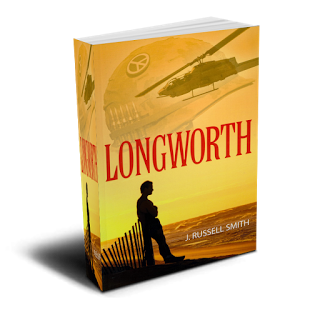 Carson Longworth seems to have been born under a lucky star. Handsome and athletic, with a certain mystique that both intrigues the people around him and keeps them at a distance, he drifts through his high school years, focusing on music, dancing, dating, and having a good time. But while he is pursuing these easy pleasures, the world around him is changing. Carson leaves the warm cocoon of his family to go to college where he gets his initial dose of reality along with his first realizations that his peripatetic childhood has left him unprepared to relate deeply to the people around him. As the Vietnam War begins to escalate, Carson is drafted into the Army, but instead decides to join the Marines. His experiences in the Marine Corps will begin to provide both the discipline he so desperately needs and the framework of domestic and international politics against which he will begin to rebel, defining and shaping his character in ways he could not have imagined.
Carson Longworth seems to have been born under a lucky star. Handsome and athletic, with a certain mystique that both intrigues the people around him and keeps them at a distance, he drifts through his high school years, focusing on music, dancing, dating, and having a good time. But while he is pursuing these easy pleasures, the world around him is changing. Carson leaves the warm cocoon of his family to go to college where he gets his initial dose of reality along with his first realizations that his peripatetic childhood has left him unprepared to relate deeply to the people around him. As the Vietnam War begins to escalate, Carson is drafted into the Army, but instead decides to join the Marines. His experiences in the Marine Corps will begin to provide both the discipline he so desperately needs and the framework of domestic and international politics against which he will begin to rebel, defining and shaping his character in ways he could not have imagined.While traveling from one duty station to another before leaving for Vietnam, Carson meets Kathy Wilkerson, a brilliant and beautiful young woman whose devotion provides the support and grounding that Carson needs in order to find his version of the truth. As a helicopter pilot in Vietnam, Carson will witness atrocities and absurdities that will reveal who he truly is: a formidably intelligent and ethical man with a need to understand the world and to stand up for what is right. Longworth is a unique coming-of-age story with a strong educational component, as well as a tender and inspiring love story. Broad in scope and beautifully detailed, Longworth is a deeply satisfying novel with thought-provoking themes that continue to resonate long after the last page is turned.
Links
Where to Purchase LONGWORTH
Amazon: Kindle, Hardcover and Paperback Barnes&Noble: Paperback, Harcover and NOOK Book
Social Links
Webpage Facebook Twitter https://twitter.com/j_russellsmith
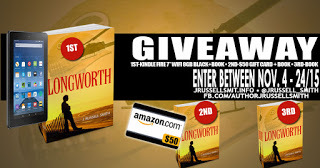
Giveaway -- Click here to enter1st Prize: Kindle Fire 7” WiFi 8GB Black plus ebook or paperback copy of Longworth 2nd Prize: $50 Amazon Gift Card and ebook or paperback copy of Longworth 3rd Prize: ebook or paperback copy of Longworth
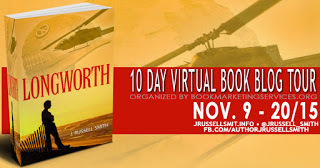
Published on November 08, 2015 19:55
November 4, 2015
CHECK IT OUT: Character Announces New Mystery
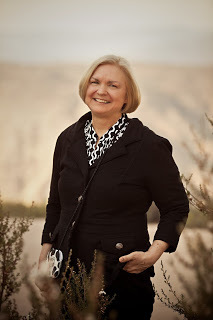 Joyce T. Strand, Author
Joyce T. Strand, AuthorLANDSCAPE FOR MURDER
HILLTOP SUNSETMy protagonist, Brynn Bancroft, has returned to tell us more about her new mystery, LANDSCAPE FOR MURDER, just released.
As her fans know, Brynn was a character in my Jillian Hillcrest mysteries where as Chief Financial Officer she served as Brynn’s boss. She was a bit risqué in those books but began to evolve into a more meaningful character in her first mystery, HILLTOP SUNSET.
In LANDSCAPE FOR MURDER, where she now is managing a winery with her co-owner ex-husband, we see her become a more caring individual—with still a few rough edges—as she learns to support her teenage ward and begins to appreciate her ex. She also exhibits a new kind of exuberance when she experiences the thrill of launching a new killer cabernet.
In the following interview, she explains how the murder of an artist friend intrudes on her new outlook.
Don't miss the giveaway opportunity following Brynn's interview.
Q: What can you tell us about your artist friend and how you learned about his murder?
Brynn Bancroft: I met my friend, Kenneth Sterling, while painting a landscape near the village of Point Reyes Station, California. It’s so, well, scenic in the area—dramatic seascapes versus calming pastoral meadows surrounding the quaint California village. I love it there.
Anyway, I was painting a landscape of one of the meadows when this elderly gentleman walks up next to me with his easel, palette, and paints and asks quietly if he could join me.
He says, “I don’t want to intrude, but I would love to share your landscape.”
It was just the right thing to say so that I didn’t mind the intrusion on my solitude.
At first we just painted and said nothing. But by the end of that first meeting I had invited him to Thanksgiving dinner. I learned that he was a retired CEO, and that other than painting, his primary goal in life was to find his daughter who had run away as a teenager more than 30 years ago.
Q: Would someone have killed him for his money? A retired CEO was probably wealthy.
Brynn Bancroft: Oh, no. He retired early because he got sick and tired of the issues of running a company. He also deeply regretted how he’d treated his daughter. He wasn’t wealthy. There appeared to be no reason for his murder that I could tell. He was just a friendly, amusing man who wanted to paint and find his daughter.
He was quite a good landscape artist, by the way, and I really loved his portraits as well.
It’s quite a mystery why anyone would want to kill him, but he was definitely murdered.
Q: So, besides painting landscapes, what else are you doing?
Brynn Bancroft: Most of my time is spent at the winery preparing to launch our new cabernet, which is the best that many have ever tasted. I am really excited to be part of its marketing and am involved in many activities, despite some disturbing happenings in the area and at our Hilltop Sunset Winery.
About the author, Joyce T. Strand
Joyce T. Strand writes who-done-it mysteries that typically involve a murder or two, often a touch of romance, and always a few red herrings.
Jillian Hillcrest, a public relations executive at a Silicon Valley biotechnology company, or Brynn Bancroft, chief financial executive turned winemaker in the Sonoma valley—solve her contemporary mysteries, including her most recent whodunit, LANDSCAPE FOR MURDER.
Her novel, THE JUDGE’S STORY, is her first historical mystery. Set in a small California town (Ventura) in 1939, the novel features a California Superior Court Judge.
Although fiction, the Jillian Hillcrest and Brynn Bancroft mysteries are inspired by real California cases. She based THE JUDGE’S STORY, also fiction, on the memoir of a California Superior Court Judge (1941).
Like her character Jillian Hillcrest, Strand headed up public relations at several Silicon Valley biotech and high-tech companies for more than 25 years. Today she lives in the San Diego area where she enjoys exploring the growing Ramona Valley wine industry.
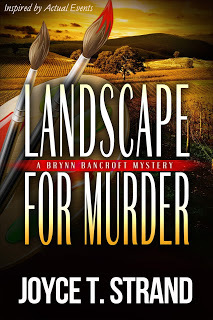 About LANDSCAPE FOR MURDER: A Brynn Bancroft Mystery (2)
About LANDSCAPE FOR MURDER: A Brynn Bancroft Mystery (2)A friend’s murder. An unconnected cast of suspects, including the victim’s missing adult daughter. As if that wasn’t enough, Brynn Bancroft’s winery has been broken into. Can she deal with her co-owner ex and help the police find her friend’s murder so she can finally overcome her own troubled past and enjoy family life with her teenage ward?
About HILLTOP SUNSET: A Brynn Bancroft Mystery (1)
A mystery set in wine country pitting financial exec Brynn Bancroft against a determined stalker, a troubled love interest, and a haunting past.
Brynn Bancroft learns that a former employee who beat her nearly to death has returned to stalk her and her friend, Jillian
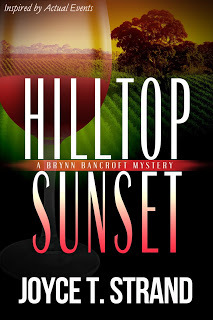 Hillcrest, also a former victim. Recently divorced, Brynn turns to a new love interest only to encounter additional unwelcome issues. Meanwhile, short-timer Brynn, who has resigned from her Silicon Valley company, becomes bored fulfilling her remaining responsibilities there. She begins to prefer supporting the launch of her ex-husband’s new hilltop winery while waiting to move to her next position. Between her stalker and her new love interest, Brynn faces a series of life-changing events.
Hillcrest, also a former victim. Recently divorced, Brynn turns to a new love interest only to encounter additional unwelcome issues. Meanwhile, short-timer Brynn, who has resigned from her Silicon Valley company, becomes bored fulfilling her remaining responsibilities there. She begins to prefer supporting the launch of her ex-husband’s new hilltop winery while waiting to move to her next position. Between her stalker and her new love interest, Brynn faces a series of life-changing events.Links
Purchase Links
LANDSCAPE FOR MURDER Amazon Kindle and Paperback Barnes and Noble Nook
HILLTOP SUNSET Amazon Kindle and Paperback Barnes and Noble Nook
Autographed copies of all paperback booksUnicorn Book Store
Author Links
Web site http://joycestrand.comFacebook http://www.facebook.com/JoyceTStrandAuthorGoodreads http://www.goodreads.com/author/show/5385246.Joyce_T_StrandTwitter: @joycetstrand
GIVEAWAY
Click here for a chance to win:
1st prize: Kindle Fire 7" Black and a paperback copy of LANDSCAPE FOR MURDER
2nd prize: $25 Amazon gift card and a paperback copy of LANDSCAPE FOR MURDER
3rd prize: a paperback copy of LANDSCAPE FOR MURDER
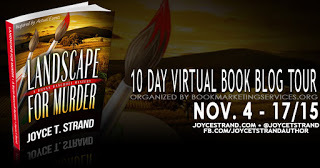
Published on November 04, 2015 18:50
November 2, 2015
WHAT THE EXPERTS SAY: Cindy Kennedy, Author, Nutritional Medicine Practitioner, and Mother
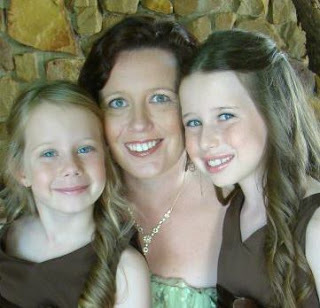 Cindy Kennedy, Mother, Author
Cindy Kennedy, Mother, AuthorHELP! MY CHILD HAS HASHIMOTO'SCindy Kennedy has produced a book for parents of children with Hashimoto’s disease, a hypothyroid disease. Because Hashimoto's typically is a disease of middle-aged women and almost never found in children, when her daughters were diagnosed with it she found little information available to help guide her. HELP! MY CHILD HAS HASHIMOTO’Scontains her experiences and research in helping her daughters, highlighted by the need for repeated blood tests. Reviewers tout the book as an “Invaluable resource full of practical advice” and a “Brilliant Parent Survival Guide Transcends Hashimoto's.”
Kennedy was able to gain access to advanced information given she is a qualified Nutritional Medicine Practitioner in Australia, where she lives with her family. She plans to write two followup books, including about how what you eat affects Hashimoto’s and a second one with interviews of those with Hashimoto’s. When she's not writing she runs her business as the owner of Nutrition Navigator, a Nutritional Medicine Practice in Grafton, NSW, Australia and spends her spare time with her family enjoying her home in the Australian bush watching the river flow by.
Q: What led you to write a book about Hashimoto’s disease?
Cindy Kennedy: When my youngest daughter was diagnosed just after her eighth birthday, I felt completely overwhelmed, so I started researching all I could about the condition. While there is quite a bit of information available about Hashimoto’s and thyroid health, none of it deals with the disease in children. Part of the problem we have faced is that it is considered a disease of middle-aged women. I’ve even had doctors tell me that children can’t get it! This also means there is very little support for children and families going through this, so I have become passionate about raising awareness that Hashimoto’s does affect children and also that there are many things that we as parents can do to help support them.
Q: How did you prioritize what was most important to include in your book?
Cindy Kennedy: This was a tough one! I have so many things I want to share, picking what to include and what to leave out was really difficult. In the end, I decided to focus on all the little things that I wish someone had told me at the beginning. With the doctors, it’s all medications, blood tests and scans, and in many of the support groups it’s all about diet, but I think you really need to start with the little things. Helping them deal with what’s going on, supporting their siblings through the upheaval, and even looking after your own stress levels. Plus things the doctors tell you to do, but don’t explain how, like getting your child to drink more water, or surviving the never-ending blood tests.
Q: Who do you believe will benefit the most from reading your book? Patients? Parents? Friends? Family of patients?
Cindy Kennedy: I wrote the book for parents, but I think it will help anyone who has Hashimoto’s. It’s all the little life-hacks that no one talks about, but make day-to-day life so much easier. Menu planning so you don’t have to shop everyday, getting a good night sleep - these are all things that can help all of us. I also think it would be good for extended family and friends to give them an insight into what you are going through and ways they can help.
Q: How does your book go beyond what we can discover on the Internet? What do you provide that we can’t get doing research?
Cindy Kennedy: The internet is great for learning about what the illness is and how it manifests, and even for researching how what you eat can impact your Hashimoto’s, but it is all targeted at adults. Kids are such creatures of habit, so getting them to change their routine, or deal with something out of the ordinary can be really difficult. You can research what medications or supplements to take, but my book gives the tricks on how to actually get your kids to take them. Let’s face it, you can’t reason with a child to take their pills at 6am on a school morning!
Q: What are the top 3-5 tips you would offer to parents of children with Hashimoto’s disease?
Cindy Kennedy: My number one tip would be make sure the blood tests get done. So many parents are reluctant when it comes to bloods tests because it is traumatic. As hard as it is though, they have to be done so their levels can be monitored and their medications adjusted. This is so important because low thyroid hormone levels in children can stunt their growth, impair their intellectual development and affect the onset of puberty. My other tips would be to make sure everyone is getting a good night sleep, and managing your stress as well as theirs. It can all feel overwhelming at times, so you need to look after your own health too.
Q: How much research did you do to write your book?
Cindy Kennedy: I have lived, eaten and breathed Hashimoto’s for the last 3 years! I attend professional seminars, scour the medical journals, read books and talk to as many people as I can. Being a Nutritional Medicine Practitioner is great because it gives me access to all manner of extra resources and wonderful mentors to guide me along the way, and enables me to dig so much deeper than I could otherwise.
Q: What did you find the most challenging to writing your book?
Cindy Kennedy: I think the most challenging thing about writing the books was deciding what to include and what to leave out. It is such a complex disease and manifests differently in everyone. As a result, there are so many ways you can support someone with Hashimoto’s. In the end, I decided to make it a book that tells you all the things you need to know in the early days, but no one ever discusses because I couldn’t find that information when I needed it. There are already books on women’s hormones, autoimmune disease in adults and even Paleo diets specifically for autoimmune disease, but there is nothing for children. Nothing that tells you how to work with doctors so you don’t tear your hair out, or how to organize the ridiculous amounts of paperwork you end up with. There was a big gap that needed to be filled.
Q: How did you make descriptions of medical terms understandable? Is it important to speak in easily understood language, i.e., is part of the problem that nomenclature obscures comprehension of the disease?
Cindy Kennedy: Thank you! I take this question as a real compliment! I was quite worried writing the book that it would be confusing because it is such a complex disease and you do have to use a certain amount of medical terminology. I think because I’ve been explaining it to my children for a couple of years, so that they understand what is going on in their bodies, it’s helped me to be able to discuss it in layman’s terms. It’s also part of my job to be able to explain people’s complex medical conditions to them and to empower them to take charge of their own health, so I guess it just comes down to lots of practice!
Q: What’s next? Will you write more on Hashimoto’s or other diseases? Do you want to become a full-time writer?
Cindy Kennedy: I still have another 2 books at least about Hashimoto’s that I really want to write. My next book will be about how what you eat affects your Hashimoto’s. In addition to the changes that you need to make to your diet, I really want to write about how to make the changes sustainable - especially for families.
What we eat is so much a part of who we are. I think the reason many people who try and improve their diet really struggle, because there isn’t enough support for changing habits. It’s one thing to know you should do something, but another thing altogether to actually do it - look at exercise! We all know we should exercise regularly, but so few of us actually do.
I’d also like to write a book that is a series of interviews with people and families living with Hashimoto’s. Hearing other people’s struggles and triumphs helps you to realize that you aren’t alone and that there are other people out there who understand what you are going through. Chronic illness can be an awfully isolating experience, and I’d really like to combat that feeling.
I don’t think I’ll become a full-time writer as I really enjoy my Practitioner work and watching people’s health improve.
Q: Tell us about Cindy Kennedy. What do you like to do when you’re not writing?
Cindy Kennedy: I’m actually a real homebody. I’m very lucky to live on beautiful acreage in the Australian bush and our property borders onto a gorgeous river, so I like hanging out with my husband and kids at home and enjoying the peace and quiet.
About Cindy Kennedy
Cindy Kennedy is the author of HELP! MY CHILD HAS HASHIMOTO'S and is the owner of Nutrition Navigator, a Nutritional Medicine Practice in Grafton, NSW. As a qualified Nutritional Medicine Practitioner and mother of two young children both of whom have Hashimoto’s, she is passionate about raising awareness in the community on the plight of families living with invisible illness and helping people overcome their autoimmune and thyroid disease.
Cindy and her family live on a property in country NSW, which gives her a unique and personal insight into the difficulties that come with rural living such as reduced access to community support, mainstream medical care, and complementary Natural Medicine. Through the use of modern technology, Cindy provides the tools via her practice and now her book to enable both city and rural families to access high quality, personalized Nutritional Medicine Services to take charge of their silent disease and live a healthy, productive and fulfilled life.
About HELP! MY CHILD HAS HASHIMOTO’S
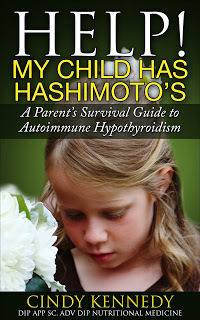 HELP! MY CHILD HAS HASHIMOTO’S is the book all people dealing with a new hypothyroid diagnosis have been looking for. Finally - a complex condition is broken down into layman’s terms that everyone can understand. Cindy Kennedy, a qualified Nutritional Medicine Practitioner and mother of two young children with Hashimoto’s reveals the secrets to successfully living with this autoimmune disease.
HELP! MY CHILD HAS HASHIMOTO’S is the book all people dealing with a new hypothyroid diagnosis have been looking for. Finally - a complex condition is broken down into layman’s terms that everyone can understand. Cindy Kennedy, a qualified Nutritional Medicine Practitioner and mother of two young children with Hashimoto’s reveals the secrets to successfully living with this autoimmune disease.Reading HELP! MY CHILD HAS HASHIMOTO’S is like sitting down with an old friend who has already been through it and wants to share their wisdom with you. It’s all the little things that no one ever tells you about. How to work with, not against your doctors and schools, tricks for preventing constipation and fatigue, how to avoid drowning in the enormous piles of medical paperwork and even dealing with the dreaded Hashimoto’s hair!
Cindy lets her sense of humor shine through as she walks you through her own family’s journey of autoimmune hypothyroidism. Told from the heart, this is not just a how-to book, but an insight into the many ways that Hashimoto’s manifests itself, and how to overcome it to live a happy, healthy and productive life.Excerpt I wanted to write this book not as a Nutritional Medicine Practitioner but as a mother, because I have walked the path myself and I know the journey that lies before you. I've taken my child to blood test after blood test, been through the fights to get her to take her medicine, endured the tantrums and meltdowns and even kept written records of her every poo! I've drowned in all the paperwork and had to juggle the seemingly never-ending procession of doctors' appointments. We've had to travel interstate to see specialists and explain to friends why she's just too tired to play. I've sat down with teachers and principals to work out a system that supports her needs. I understand.
This book will take away the feeling of being overwhelmed - of being confronted with so much information that you don't know where to begin. It will break it down into easily digestible chunks can be worked through together as a family, step-by-step at your own pace. I want to alleviate the fears and guilt we feel as parents when our child is diagnosed with a chronic illness. I want to provide support so you don't feel lost and alone like we did. I want you to know that your baby isn't the only child having to deal with this grown-up's disease. Most of all, I want you to have hope. Hope for the future. For your family's future and your child's. I want you to realise that this disease can be managed. It may not be easy, but it is achievable. I want to take you by the hand and lead you through the confusing and overwhelming early days - one step at a time. This book will give you all of the tools that we didn't have, but so desperately needed in those difficult first few months. I want you to know it is going to be okay.
The following pages contain everything you need to get you through the first month or two following their diagnosis. From how to organize the mountain of medical paperwork, to getting your child to take their medicine every day. There are stress management techniques to help you cope and fun activities for your kids to help keep them calm. Symptom and poo diaries are explained along with links to some great apps guaranteed to make your life easier and run a little more smoothly.
Links
Purchase Links
Purchase on Amazon
Author Links
Twitter: @NutritionCindyhttps://twitter.com/NutritionCindyGoodreads BookGoodreadsAuthorWebsiteFacebook
Published on November 02, 2015 19:01
October 29, 2015
WHAT THE EXPERTS SAY: David W. Edwards, Novelist, Screenwriter, Producer, Director
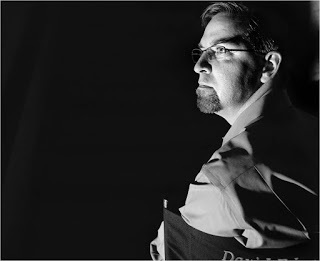 David W. Edwards, Author
David W. Edwards, AuthorNIGHTSCAPE: CYNOPOLIS
Writer, producer, director NIGHTSCAPE Reviewers describe David W. Edwards newest novel, NIGHTSCAPE: CYNOPOLIS as “Urban horror at its best... a rollicking, action-packed thriller/fantasy” and “unique;” and Edwards as “a master of character building.” He positions his new book as an “urban-horror novel.” Although it is the second of his NIGHTSCAPE books, he says it is standalone even though readers of both might recognize some characters.
Both a screenwriter and novelist, Edwards “feels comfortable” writing either. He is also a director and producer as well as writer of the feature film Nightscape. He is currently editing the first in a new series of books, Nightscape Double Feature No. 1. When he’s not writing, producing, directing or working at his market research-based business, he manages to get in some hiking with his wife, play low-stakes poker once a month, and occasionally go see a movie.
Q: Tell us about NIGHTSCAPE: CYNOPOLIS. Is it a sequel to NIGHTSCAPE: THE DREAMS OF DEVILS? Is it horror, paranormal, thriller, adventure, or ????
David W. Edwards: I’d characterize it as an urban action-horror novel. How’s that for a hybrid genre? The book features a lot of widescreen physical action but the motivating threat is supernatural. More specifically, it’s about a former counterculture radical who turns Detroit’s dogs feral and its underclass into a horde of jackal-headed beasts. The few remaining humans must find a way to elude the military blockade preventing their escape or defeat the thought-virus at its source—before government forces sacrifice them all.
Each NIGHTSCAPE release works as a standalone effort. If you read the first novel or see the film prior to reading CYNOPOLIS, however, you’ll be rewarded with some surprising connections.
Q: Is NIGHTSCAPE targeted at Young Adult readers? Do you believe this genre grabs young adults most effectively?
David W. Edwards: Even though THE DREAMS OF DEVILS features teen protagonists, neither that book nor any of the other entries in the series are targeted at the young adult market. That’s not to say teens wouldn’t enjoy the series. But the entries released so far are intended for mature readers. Or, at least readers who can handle profanity and graphic violence along with high-falutin’ references to Frantz Fanon, G.W.F. Hegel and quantum physics.
Q: A reviewer of NIGHTSCAPE: THE DREAMS OF DEVILS touts the story as “a refreshing departure from the usual paranormal teenage drama” and “a perfect read for those looking for a paranormal adventure off the beaten trail.” Do you agree? And, if so, does NIGHTSCAPE: CYNOPOLIS follow this approach?
David W. Edwards: I’d like to think both books are uniquely compelling. CYNOPOLIS is distinguished from the previous book, in part, by its emphasis on action. After the second chapter or so, the action is relentless and varied, running the gamut from simple fisticuffs to psychic warfare. The finale is a continuous thirty-plus page battle scene. It’s like Tom Clancy meets William Burroughs.
Q: Do you feature villains vs heroes in your stories? What makes an effective villain? Do you need a villain to portray a hero?
David W. Edwards: With one exception, I’d hesitate to describe any of the characters in CYNOPOLIS as wholly heroic or villainous. I generally take a Shakespearean approach, that is, I let my characters’ thoughts and actions speak for themselves without editorializing. Even my protagonists are flawed in important (and hopefully, relatable) ways. One of the main point-of-view characters, for instance, leads a street gang. Events compel him to question gang culture and his relationship to the larger community. His change of mind gives the story’s coda its moral force.
Q: What traits do you use to develop your characters so that readers will find them engaging and care about them? Is humor helpful? And are they perfect or flawed?
David W. Edwards: CYNOPOLIS has a fairly large cast of characters. To help readers keep them straight, I focused on one or two distinctive personality traits. One character, a homeless but educated bookseller, has an irresistible habit of composing bits of poetry. It’s not just a readily identifiable personality tic. This habit proves essential in resolving the central conflict.
I also work hard to distinguish characters on the basis of dialogue. My goal here is to craft dialogue that’s putatively realistic, but doesn’t simply mimic real speech with all of its fitfulness and disconnections. When appropriate, I try to give my dialogue the quality of a persuasive dream.
Q: Do you prefer writing screenplays or novels? What’s the main difference? Is it more difficult to write a screenplay or a novel?
David W. Edwards: I’m perfectly comfortable writing both screenplays and novels. My training as a screenwriter at the University of Southern California gave me a strong sense of story structure and helped inform my approach to dialogue. Screenplays, however, are necessarily limited in scope and impact. Firstly, screenplays are blueprints for movies. They aren’t regarded by producers as ends-in-themselves. So the actual writing tends to be flat and functional compared to that of an involving book.
Secondly, given that movies are primarily a visual medium, complex psychological and emotional states are challenging to get across with novelistic power. It’s easy enough to drop readers directly into a character’s thoughts in a book. The equivalent in film—the voice-over—isn’t nearly as effective and can’t be sustained to the same degree as prose without losing most of the audience. There are a few stream-of-consciousness rants in CYNOPOLIS that would be impossible to replicate on film without veering into quasi-Terence Malick territory.
Q: Do you write primarily to entertain your readers? Or, do you also embed a message or two in your stories?
David W. Edwards: At the risk of sounding hopelessly insular, I write to entertain myself. I gravitate to the stories I wish already existed. Imagining what my amorphous readership wants would lead to madness as readily as any secret grimoire of H.P. Lovecraft’s. When it’s appropriate to the story, I also try to give it some elevated sensibility or purpose beyond entertainment. CYNOPOLIS has a definite moral center, though I’ll leave it to readers to suss out the novel’s meaning.
Q: How relevant is credibility in a paranormal story? What will drive a paranormal reader crazy if they encounter it in your story?
David W. Edwards: Credibility is of paramount importance. That’s why I conducted loads of research for CYNOPOLIS. Getting the mundane details right is what makes the fantastic elements of your story believable. I spent a week in Detroit shadowing a no-kill dog rescue operation, participated in police ride-alongs, conducted a variety of interviews and risked the attention of the NSA in researching the answers to questions like ‘How can you explode a rocket without its piezoelectric arming mechanism?’
If I’ve done my job right, the only thing that will drive a reader crazy is the anticipation of learning what comes next.
Q: What’s next?
David W. Edwards: I’m currently editing the first in a new series of books, Nightscape Double Feature No. 1. The book consists of two pulp-style novels and will be published in a tête-bêche or dual-cover format like the old Ace Doubles. The first novel, The Thousand-Eyed Fear, is set near the end of World War One. It’s about a ragtag group of teen soldiers tasked with infiltrating a secret German base that harbors a terrible supernatural threat. The second novel, The Blood Canvas, is a pre-World War Two murder-mystery featuring a female French detective who uses surrealist art techniques to uncover clues. Credit goes to genre veterans Derrick Ferguson and Sean Taylor for their exceptional work on these stories. The book has a February 2016 pub date.
Following that, I plan to issue a Nightscape concept album in the vein of Rush and Black Sabbath, along with another novel, Nightscape: Among the Unsaved. There’s certainly no shortage of ideas, just the time and resources to realize them.
Q: Tell us about David W. Edwards. What do you like to do when you’re not writing?
David W. Edwards: I have a fairly demanding day job as a market research-based business consultant. Most of my spare time outside of that or writing-related activities is spent with family or friends. My wife and I enjoy hiking in and around our hometown, and take in the occasional movie in the theater (my preferred venue). I also participate in a low-stakes poker game about every six weeks or so. I’m not a great poker player, but I’m not one to shy away from a little risk. About David W. Edwards
David W. Edwards is the writer, director and producer of the feature film Nightscape and author of the novels NIGHTSCAPE: THE DREAMS OF DEVILS and NIGHTSCAPE: CYNOPOLIS. He attended the University of Southern California’s prestigious screenwriting program and earned bachelor’s and master’s degrees in English Literature while working for a variety of Hollywood production companies. He’s the founder and former CEO of a successful high-tech market research firm, and a former two-term state representative. He currently lives in Hillsboro, Oregon with his family.
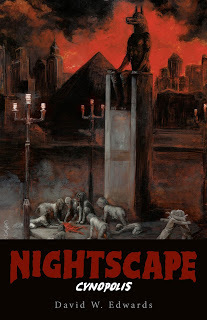 About NIGHTSCAPE: CYNOPOLIS
About NIGHTSCAPE: CYNOPOLIS
Detroit’s eastside has seen its share of horrors. Once-proud factories gutted for scrap. Whole neighborhoods burned out and boarded up. Nature drained of color. But nothing like this: a thought-virus that turns the city’s dogs feral and its underclass into jackal-headed beasts.
The city erupts in chaos and nightmare violence. Communication in or out is impossible. The skies fill with lethal drone copters and airships bristling with heavy-duty cannon. Abandoned to their separate fates among hordes of monsters, the few surviving humans must find a way to elude the military blockade preventing their escape or defeat the virus at its source—before government forces sacrifice them all.
Breakneck action, rogue science and deft portraiture combine for a grand and gripping tale of urban terror.
Links
Website Readers can order a discounted and signed edition of the book from this site
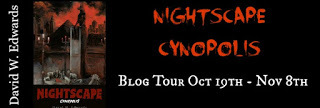
Published on October 29, 2015 19:42
October 28, 2015
WHAT THE EXPERTS SAY: Katalin Kennedy, Author
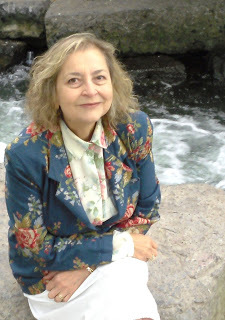 Katalin Kennedy, Author
Katalin Kennedy, AuthorRECONNECTING
THE WOMEN GATHERKatalin Kennedy describes her newest novel, RECONNECTING, as “plausible or realistic fiction” about relationships older women create as they enter new life segments. Although she writes fiction, Kennedy focuses on relationships in her books and primarily targets women, but has been pleased that men have read and appreciated her novels.
Kennedy is currently working on her third book to involve relationships. When she's not writing, she participates in a variety of organizations and causes, and loves to travel. She currently lives in Cornwall, Ontario.
Don't miss the opportunity to enter a giveaway following the interview.
Q: In what genre would you place RECONNECTING? Why?
Katalin Kennedy: This is a question I’m frequently asked, and one with which I have difficulty. I’ve used my own term ‘plausible fiction’, although I understand that the term ‘realistic fiction’ might be better known. My story line is not based on any real life anecdote, nevertheless, it is within the realm of plausibility. I make reference to a good number of historic facts, and that gives the novel a realistic flavor.
Q: The theme for RECONNECTING seems to be the exploration of the relationships that accompany friendships. What drove you to delve into this theme?
Katalin Kennedy: As long as I write, I will always discuss some aspect of the relationship people develop among each other.
In RECONNECTING I wanted to explore the threads that connect a small group who are older: Marlie, Kendra, Vanessa and Iris. Unless we live on a mountain, being part of a community no matter how small, is an integral aspect of our human need. Our networks diminish and certainly change once we close the door to the ‘work force’ community. The change dictates that we redefine who we are, both to ourselves and to others. Mental health professionals continue to promote the importance of social contact as a means to achieve our own positive attitude about aging. Thus, coming together at the Condo Complex in Ottawa, the four women redefine their new ‘community’ and at the same time, begin to explore who they are in a new role they must now assume. Along the way, their ‘entanglements’ with each other come to form a closer bond and a realization that one never has to stop learning.
Q: Reviewers appreciate RECONNECTING as “a good feast for the soul.” Did you intend to write both an entertaining story as well as offer insight and guidance through ‘reconnecting?’
Katalin Kennedy: The women meet for weekly dinners. I chose this setting because I do think it is a way many of us interact with each other. Through these times of being together, we learn about the women’s beliefs, their attitudes and their individual stories; it is also a means by which the women themselves learn about each other. Thus while they nourish their bodies they also nourish their soul. I’ve incorporated dialogue into a good portion of the novel, which to some extent ‘lightens’ the more serious aspects of their discussions.
For a reader to want to turn the page of a novel, there needs to be some form of involvement. If the reader is comfortable with the characters at informal gatherings, more profound points can also be raised for personal reflection.
Q: RECONNECTING primarily involves women as the main characters. Have you targeted women readers? Or will men also appreciate the story?
Katalin Kennedy: Years ago, one of my professors at university offered the advice to write about what I know. So of course, I’ve targeted women as the reader. From both a personal and professional point of view (having worked for years in women’s issues) I am familiar with the role of older women who live alone. In this novel, nevertheless, there are the compatible male characters Sam and Robert who are also older, and who have equal concerns about their life course and beliefs. A number of men whom I know have read my novel and have been quite comfortable about the discussions that take place within it.
Q: What do you consider essential characteristics of an engaging character? What will make readers want to follow your protagonist, Marlie, and her friends?
Katalin Kennedy: Good question again… one that I can’t help but think is quite subjective. From my point of view, a character needs first to fit into the story line. And second, s/he needs to transmit a certain amount of humility and conviction; at the same time, s/he should suggest some flaws, which s/he may or may not recognize. In other words, the characters (not only the protagonist, but each of them) need to be somewhat like we are, human, so that we can relate to them. That after all is generally how a reader becomes involved with and takes away from what the novel conveys.
(I want to digress here and comment that for the writer, this is somewhat a double edged sword. Readers may assume that the characters portray thinly disguised traits of the author. From the point of view that they are life like and believable, this is a positive observation. But from the writer’s agonizing creative process which is involved in bringing characters to life, this is a rather dismissive opinion.)
Q: What do you consider to be the key characteristics of a friendship/relationship?
A: Being open and accepting. These seem to be simple enough characteristics, but they are not. As Marlie and her friends discover, once the ‘superficial’ layers of what they thought they knew about each other are peeled away, they each harbor other traits which were quite different from what they had assumed to make up each persona. And these are traits which require a new understanding in their relationship.
Q: Do you value humor as a component of telling your story and/or of developing relationships?
Katalin Kennedy: It is one component which seems to work. Laughter is a great communicator, especially after a glass or two of wine. Humor seems to suggest the impression that we don’t take ourselves too seriously, which is a comfortable lead-in to relationship development. Once that path has been opened, we can more easily tread off into disclosing more significant aspects of our life.
Q: You have written poetry, columns for a newspaper, and now two novels. Do you have a favorite? Were you able to leverage your column-writing experience for your novels?
Katalin Kennedy: I guess the last work one creates is more likely the favorite. But I’m not sure. I have a good comfort level with most of my previous writings. They portray a perspective that was valid at the time; surprisingly, most still resonate as applicable even now.
I’ve not thought of my previous writings as ‘leveraging’ but I suspect there is validity in that way of thinking. I tend to be what I call a ‘brief’ writer; I generally need to go back and expand on a narrative. Both in poetry and in column writing of the 500 word requirement, I was able to express my thoughts in what I’ll call distinct ‘chunks’. Eventually, I felt too closed-in by that method and wanted to expand into writing a full length novel. I suppose the previous approaches served me well. I learned to compartmentalize. I certainly did that in my first novel “The Women Gather”, which unfolds through letters, articles, diaries, newspaper clippings and videos. To some extent it is also evident in “Reconnecting” as the various characters have their own distinct story lines – which eventually interconnect.
Q: What’s next?
Katalin Kennedy: The idea for “Reconnecting” began to emerge while I was in the throes of writing my first novel “The Women Gather”. And again, I experienced the emerging of Book 3 as I was completing “Reconnecting”. This serves a positive aspect: giving me confidence that I still have more to say. I’ve been asked whether I would do a sequel, but that is not yet in my consideration. As both “The Women Gather” and “Reconnecting” are quite different in style and of course in content, I need to make sure that the third one will follow my need for diversity. The story line is evolving; research, outline, character formation etc. are being worked out. At the same time, I’m planning to take my previous writings (some of which are on my web site http://katalinkennedy.com) and compile them in one book.
Q: Tell us about Katalin Kennedy. What do you like to do when you’re not writing?
Katalin Kennedy: I am a retired civil servant, who worked in social service programs in Ottawa, with the Canadian Federal Government. After moving to Cornwall Ontario, I joined a number of community organizations having held office in some of them as my biography indicates. I enjoy the company and causes of diverse groups, (both in age and in gender). I do belong to a Book Club through the Canadian Federation of University Women (CFUW) which gives me a good sense of what other writers address. I love research and learning to such a degree that my tablet has become a good companion; a thought races in the brain and I need to explore it further. Travel is at the height of activities which I enjoy having been through Britain and Europe on a number of occasions, and in China. I’m disheartened by the tragedy of peoples who need to leave their homeland to seek asylum elsewhere. It is an experience I understand, having come to Canada as a refugee in my childhood.
About Katalin Kennedy Katalin (András) Kennedy escaped from Hungary with her parents on Christmas Eve 1956. She married Duncan Scott Kennedy in 1972 and graduated from Ottawa’s Carleton University. In the latter part of her career, she managed major national projects with Health Canada’s Family Violence Prevention Programs, until her retirement. Her beloved soul mate, the Rev. D. S. Kennedy passed away in 2006. She now resides in Cornwall, Ontario and continues her involvement in various organizations: Canadian Federation of University Women, Probus Club of Cornwall and Area, Encore Seniors’ Education Program and the Cornwall and Regional Writers’ Society. For ten years she was a columnist for Seaway News. In 2012, Kennedy launched her first novel “The Women Gather” and in June 2015 “Reconnecting” was also released by Baico Publishing.
About RECONNECTING
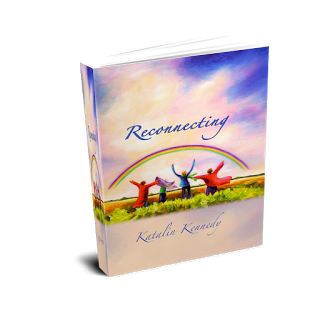 RECONNECTING is an essential novel for our times. Katalin Kennedy expertly weaves a captivating story about how the bonds that women experience guide their choices -- and ultimately destiny -- through relationships that can be as messy and wondrous as life itself. As we get to know Marlie and her enquiring mind, her pondering of crucial issues and ensuing flashes of insight reveal how love and friendship, with a good dose of providence, can guide our lives and lead to wisdom. This book is as heart-warming and comforting as a good feast for the soul. We are left wanting to share more time with Marlie and her distinctive friends.
RECONNECTING is an essential novel for our times. Katalin Kennedy expertly weaves a captivating story about how the bonds that women experience guide their choices -- and ultimately destiny -- through relationships that can be as messy and wondrous as life itself. As we get to know Marlie and her enquiring mind, her pondering of crucial issues and ensuing flashes of insight reveal how love and friendship, with a good dose of providence, can guide our lives and lead to wisdom. This book is as heart-warming and comforting as a good feast for the soul. We are left wanting to share more time with Marlie and her distinctive friends.RECONNECTING excerpt: Page 61
“Damn this aging thing!” Iris heard herself bemoan to Marlie later that evening as they and Poppy consumed the last of the leftovers. “The Asians have such a sensible attitude about growing old and having respect for their elders. I have to say I don’t think much about the wisdom of my years as I helplessly watch my mother return to infancy. She's 95 for pity’s sake. We weren't meant to live that long, and not that way.”
“We each have our own story,” Marlie was trying to assemble words that would convey comfort. “My mother died twenty years ago: too young, too early, and too healthy. For years, there wasn't a day that went by without me wishing she was still alive. She died so suddenly. So unexpectedly ‒ exactly a year to the day of my father's death. They were very much in love. I've heard others having that experience. When the first year anniversary of Owen’s death passed, I can't tell you how relieved I felt. Oh, I shudder having made such a horrid admission, out loud. I think my mother died of a broken heart and I wondered if I would as well.” Marlie stopped abruptly. “I'm sorry! You didn’t need to hear this. You have enough to deal with.”
“What kind of friends are we if we have to tip-toe around each other?” Iris was quick to respond. “Your parents and husband died ‒ all too young. My father was 98 when he passed away two years ago. My mother's body is still on the planet, as is my ex-husband Warren's. Which of us is better off emotionally? Who knows? Still, you have your gorgeous daughter Mandy. I was so pleased to spend a bit of time with her again.” …
Marlie was somewhat puzzled to hear about this part of her daughter’s connection with Iris. She knew it existed, but not to what extent. Was she sensing a tinge of envy? Of being left out? What else about her daughter did she not know? Has she been so self-absorbed that she hadn’t been paying sufficient attention? Or had Mandy deliberately left parts of her life completely private? How foolish she suddenly felt. Mandy was a grown woman, with her own friends, and her own life. There were probably tons of things she didn’t know about her. Marlie had been surprised that Mandy decided to delve fully into work on her thesis, directly after Owen’s death. Perhaps that was the way she coped. Owen had been the world to her and she to him. When they had decided to have a child, Owen confided that he preferred having a daughter; he simply said he knew girls to be more sensible. He had also teased Marlie: ‘I don’t want you to become jealous of our relationship, when she becomes a beautiful young woman.’ Father and daughter had been very close. Strange that she was now feeling envious of her daughter’s relationship with one of her dearest friends.
LinksSocial LinksFacebook Twitter: https://twitter.com/emesesdreamprodWhere to Purchase:Chapters IndigoBaico Publishing IncAuthor: Katalin Kennedy Webpage email: emesesdream@hotmail.comGiveaway:· First prize: $25 Amazon gift certificate and autographed copy of Reconnecting· Second and third prize: Autographed Copy of Reconnecting Link to Giveaway
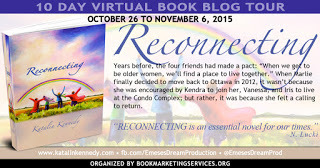
Published on October 28, 2015 19:12



